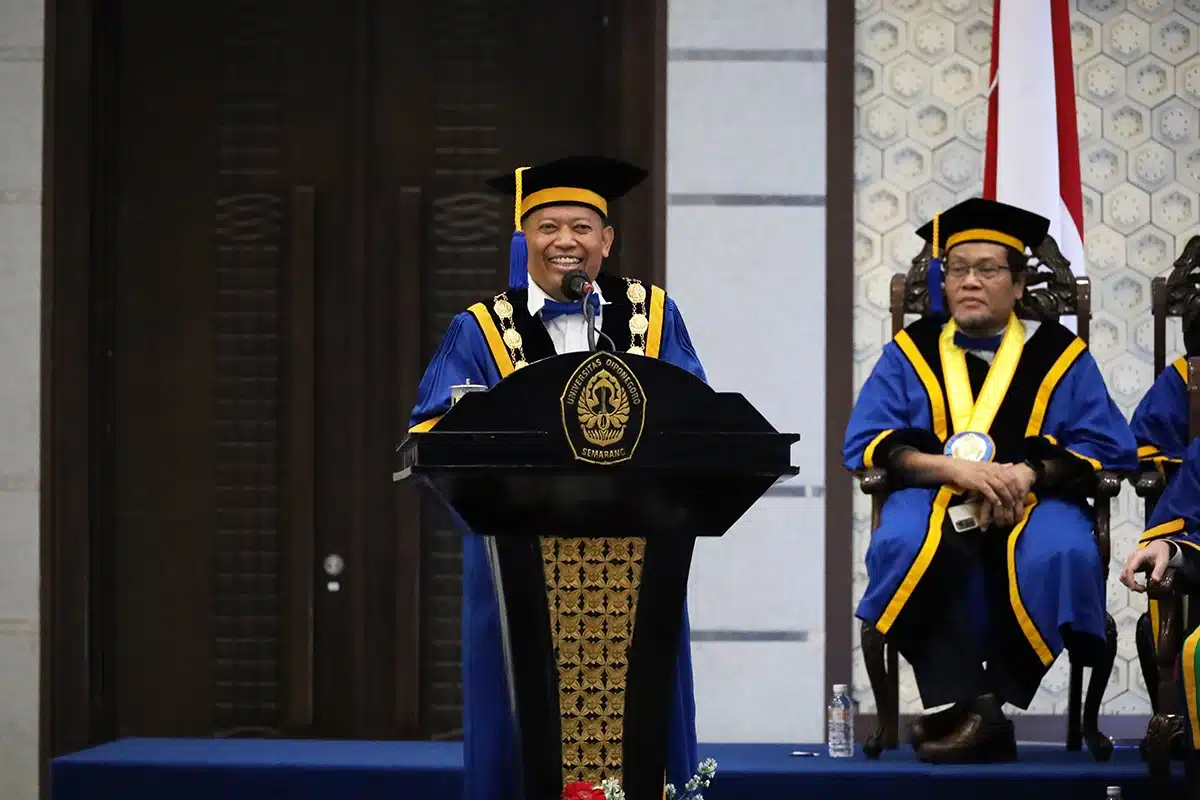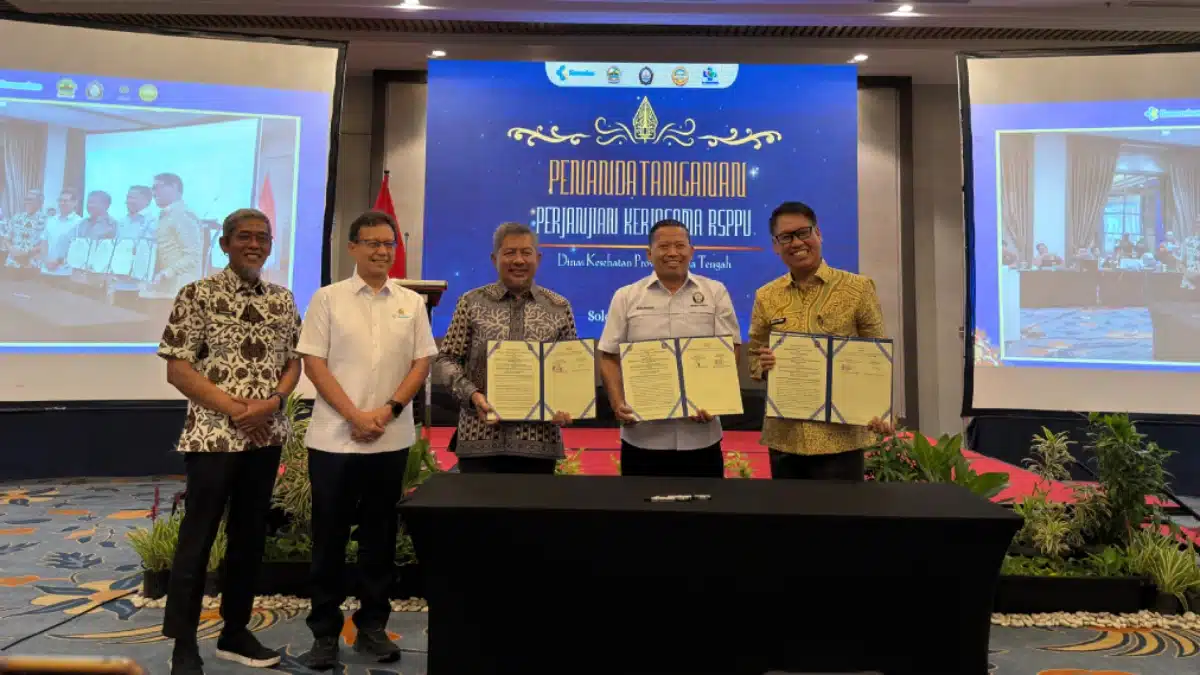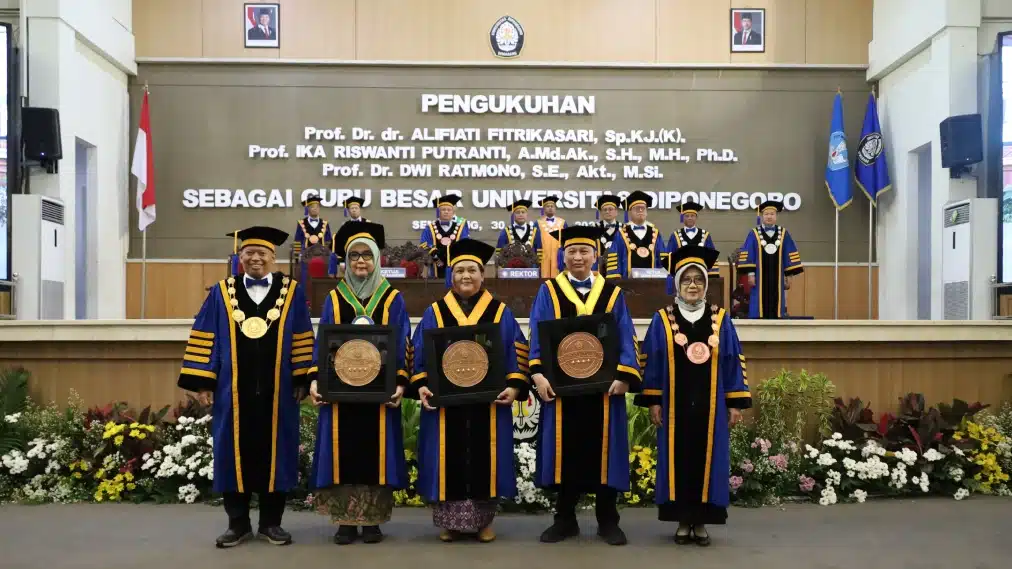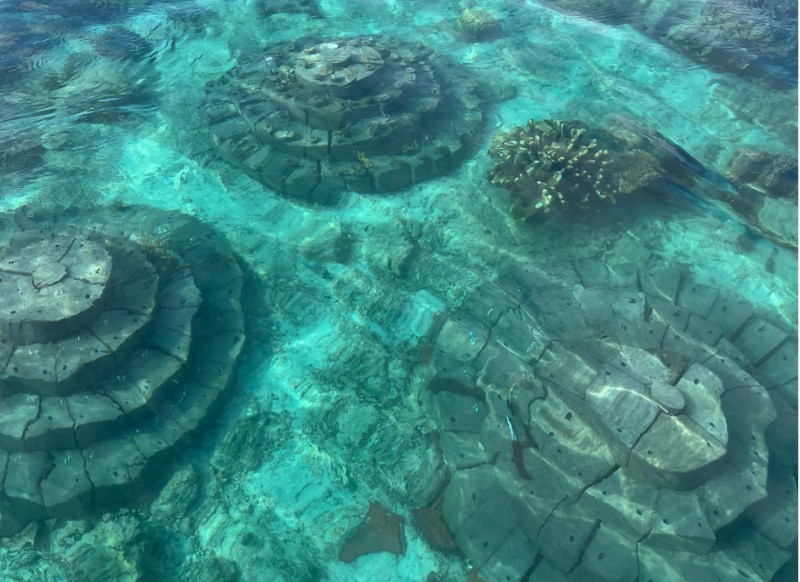UNDIP, Semarang (May 29, 2025) – Universitas Diponegoro (UNDIP), a higher education institution known for its coastal region eco-development focus, continues its commitment to supporting the preservation of Indonesia’s coastal and marine ecosystems. In collaboration with PT Pelayaran Nasional Indonesia (PT PELNI Persero), UNDIP’s Faculty of Fisheries and Marine Sciences (FPIK) conducted a coral reef rehabilitation project from May 3–8, 2025, at Menjangan Besar Island, Karimunjawa.
This initiative was part of PT PELNI’s obligation to rehabilitate coral reefs damaged several years ago by the grounding of one of its ships, the Ganda Nusantara 10. Before the coral rehabilitation activities began, the team held outreach sessions with residents and stakeholders in Karimunjawa.
During the outreach session, Prof. Dr. Ir. Munasik, M.Sc., a coral reef ecology expert at UNDIP, explained that the rehabilitation utilized an artificial reef technology known as Artificial Patch Reef (APR)—an innovation developed by UNDIP in 2015 and already implemented in several locations across Indonesia. The APR method was chosen based on the specific characteristics and type of coral damage in the Karimunjawa site.
“The reef damaged by the PELNI ship is a patch reef located in the strait between Karimunjawa and Menjangan Besar Islands. The damage is physical, appearing in small patches across the shallow reef flat. It is limited in size and has a patchy distribution,” Prof. Munasik said.
He emphasized that the site’s underwater topography poses high challenges, including limited space, uneven substrate, and strong tidal currents. Therefore, a robust and stable structure was needed—a concrete-based Artificial Patch Reef (APR). As the method’s innovator, Prof. Munasik further detailed the design.
APR consists of modular concrete substrate units that interlock to form a patch reef. Divers can easily assemble the modular structure underwater. The tiered design increases seabed rugosity and provides more surface area for coral larvae to attach and grow, promoting natural coral recruitment and enhancing ecosystem recovery in damaged areas.
The APR design also supports coral transplantation, enabling the restoration of at least 15 species of hard coral that were damaged or lost. The restoration is expected to be completed within three years under the supervision of the Karimunjawa National Park Office (Balai Taman Nasional Karimunjawa / BTNKj), Ministry of Forestry.
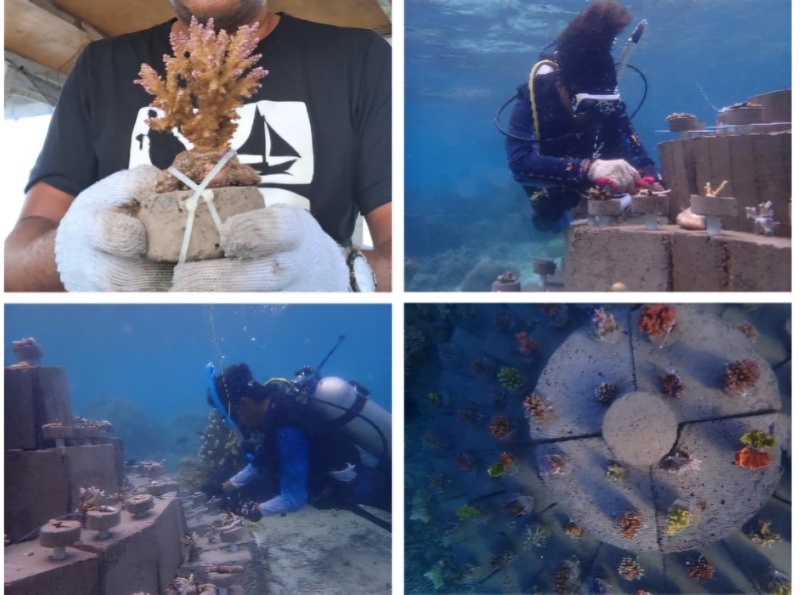
Dr. Muhammad Helmi, a lecturer of FPIK UNDIP and project coordinator, added that the partnership between FPIK UNDIP and PT PELNI began in mid-2024 and was implemented in early 2025. The project started with a site survey to assess coral conditions, reef morphology, and seafloor rugosity at the Gosong reef area near Menjangan Besar.
Following this, the team conducted public outreach, installed the APR units, and transplanted coral fragments. Four APR units were installed across a 20-square-meter patch reef, with most coral seedlings sourced from coral farms on Sambangan Island, Karimunjawa.
Isai Yosidarta, S.T., M.Sc., Head of the Karimunjawa Section at BTNKj, highlighted the significance of the UNDIP-PELNI reef rehabilitation initiative. He noted that it serves as a pioneering model of independent ecosystem recovery, the first of its kind in Indonesia, as companies typically pay restoration fees rather than undertake the work directly.
“The coral seedlings used in this project were not taken from the wild, but cultivated through coral farming on Sambangan Island,” Isai added.
Local communities in Karimunjawa expressed hope that the APR-based coral restoration site will become a new, educational, and unique tourist attraction. The site could serve as a platform for scientific innovation, coral reproduction learning, photo opportunities, snorkeling, and diving.
The project also introduces a novel form of educational tourism where visitors can participate in assembling simple APR units underwater and transplanting coral fragments labeled with barcodes and their names—a “coral adoption” experience. With the success of this program, similar reef restoration techniques could be replicated in other coastal areas across Indonesia.
This strategic collaboration between FPIK UNDIP and PT PELNI reflects not only an effort to rehabilitate marine ecosystems but also UNDIP’s broader commitment to research-driven innovation for environmental sustainability. The initiative supports the university’s vision of becoming a beneficial and dignified institution for the nation. (Public Communication/FPIK/ed. Nurul)


